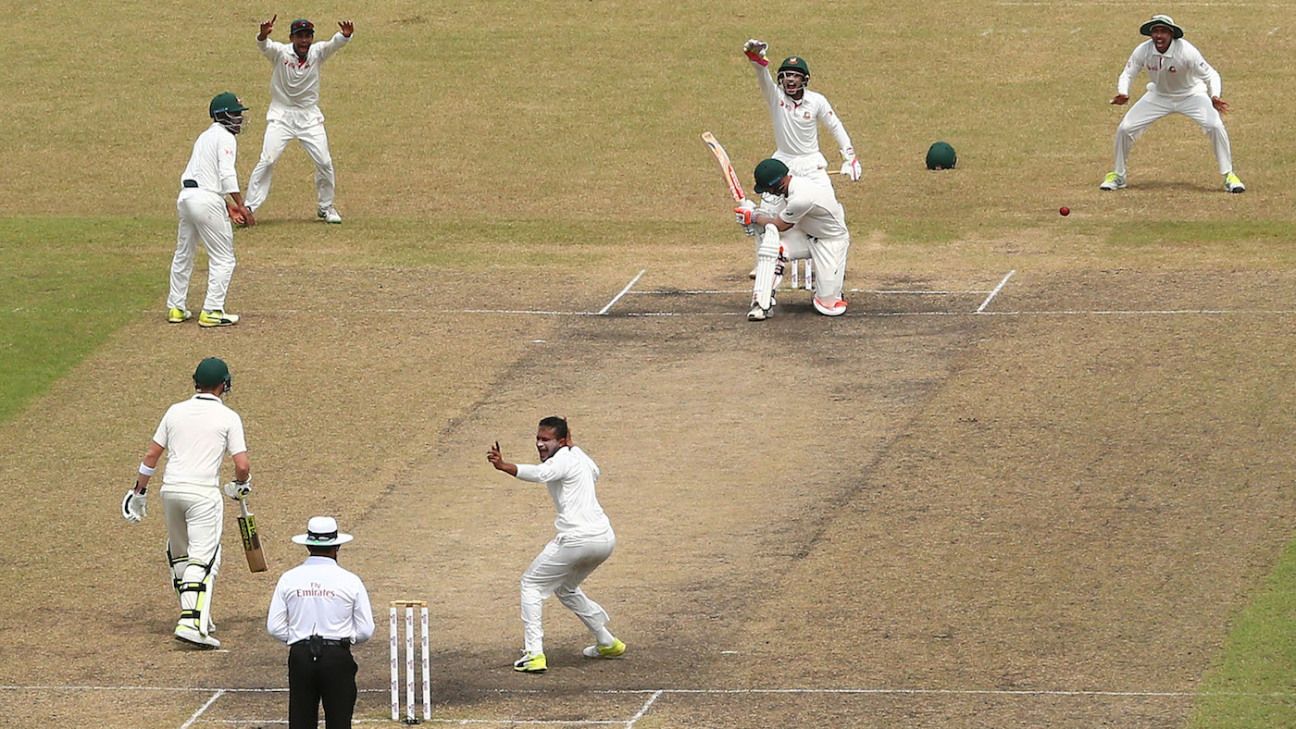Wait, this argument has almost got a weird Moebius twist to it. When they didn't have the margin of error, DRS bashers would say "Well, how can the thing predict whether or not it's going to flick the bail or the side of the stump. It isn't that accurate." Now it's "Well, it all feels a bit strange, it says it's going to flick the bails but they obviously don't trust it, so it stays with the umpire, that doesn't feel right, the funny thing is, if the umpire gave him out, he'd have to go.....blahblahblah"
I really like the system as it is now, maybe with a tweak adding a grey area for height. If it was clearly in or out, the ump is overruled, if it's it that zone, he's given the benefit of the doubt (because the whole argument isn't it? It's not a howler, it's a close one.)
The absolute last thing I want to see is for them to give the benefit of that doubt to the batsmen, because then LBWs become ridiculously hard to get.
I really like the system as it is now, maybe with a tweak adding a grey area for height. If it was clearly in or out, the ump is overruled, if it's it that zone, he's given the benefit of the doubt (because the whole argument isn't it? It's not a howler, it's a close one.)
The absolute last thing I want to see is for them to give the benefit of that doubt to the batsmen, because then LBWs become ridiculously hard to get.



